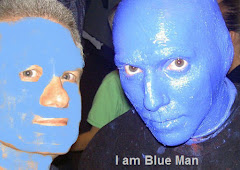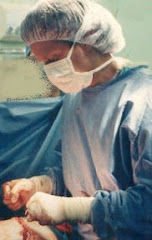There has been so much cancer, infection of all kinds, diabetes and GI tract diseases. Seems we are being inundated with it all at the community hospital level. And over the years I've read good discussions about the connection between what we eat and all of these. Isn't it time we made a strong effort to return to a more natural way of eating to at least test the theory?
It would be unheard of to deliberately go to the medicine cabinet and ingest antibiotics and/or hormones for no reason. Yet we ingest foods with both and somehow that seem normal to society when we eat meats. We continue to be an obese people eating too much of the "white" stuff including flour, milk, salts and sugars. More amazing, how much of this stuff we feed to sick patients disguised as "nutrition" during hospital stays and convalescence.
Consider raw fruits and vegetables. They really are our natural diet. They contain all of the essential nutrition we need for life. They are complete foods including fats and proteins. They are composed mostly of water, necessary for good hydration and water balance in the body. They are low in salt, fats without any preservatives, additives, cholesterol, uric acid, adrenaline, hormones, antibiotics or pathologic bacteria in their natural state.
But, the dietician retorts, what about protein? Most plants can biosynthesize all 20 standard amino acids (the building blocks of proteins). Every vegetable and fruit has protein, some more than others. In a diet that contains fruits, vegetables, nuts, seeds, legumes and grains...we will get the protein we need without adding meats to the mix. Each food varies from 4-8% protein with all 8 essential amino acids that we cannot produce ourselves but need. Tomatoes, zucchini, cukes are particularly good sources as are leafy greens, carrots, celery, cashews, chia seed, sunflower seeds, flax seed, mushrooms, sprouted beans, lentils and spirulina. Protein is the essence of "green drinks" in that way. I suggest there is plenty of protein.
It is possible to get protein, needed fats and carbohydrates, nutrients of all kinds and the nutrition the human body needs from this type of eating, so it would seem. What's important now is to test this inexpensive intervention and support individuals through the transition from the old to the new way of eating. It's not a diet, it's a lifestyle change. Including some movement exercise, this is a lifestyle with the potential to reverse the trend of disease in developed countries. It's certainly worth the effort. We have nothing to lose but ill health.
Blogging the trek of an non-traditional, older dude through a traditional physician educational process in a non-traditional world. Some people go out and buy a muscle car for their midlife crisis (I miss my '70 Camaro), but I decided to go to medical school. It is in God's hands and it's a RUSH.
Being a 50 something medical-school graduate now isn't as "nuts" as everyone seems to think. Just getting prepared for the rest of my life
"Life isn't about finding yourself; It's about creating yourself" - George Bernard Shaw
"Life isn't about finding yourself; It's about creating yourself" - George Bernard Shaw

Just another Blue Man...

"One act of pure love in saving life is greater than spending the whole of one’s time in religious offerings to the gods." -Dhammapada


"Life is either a daring adventure, or nothing at all." - Helen Keller
"Behold the turtle. He makes progress only when he sticks his neck out." - James Bryant Conant (1893-1978), Chemist and educator

